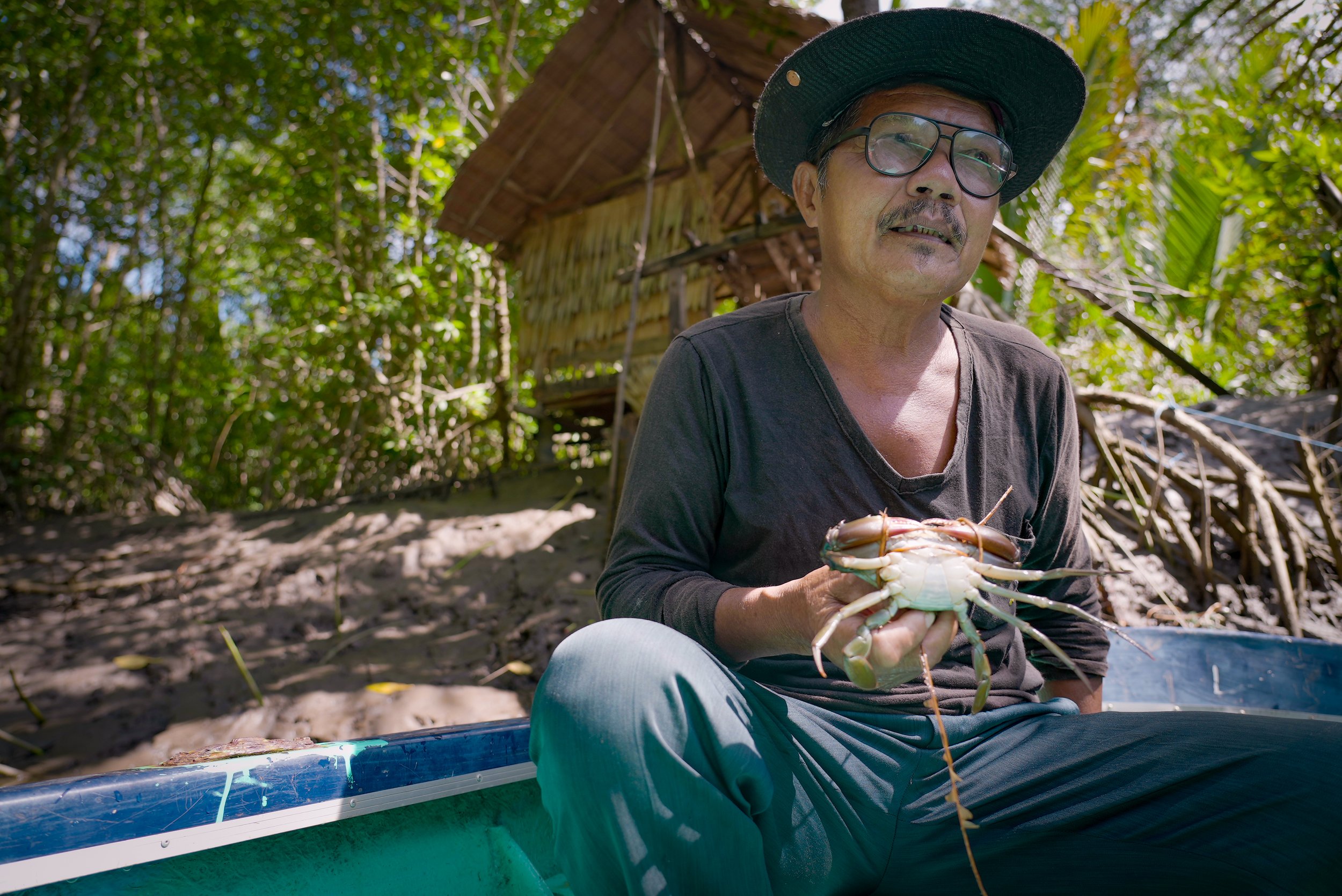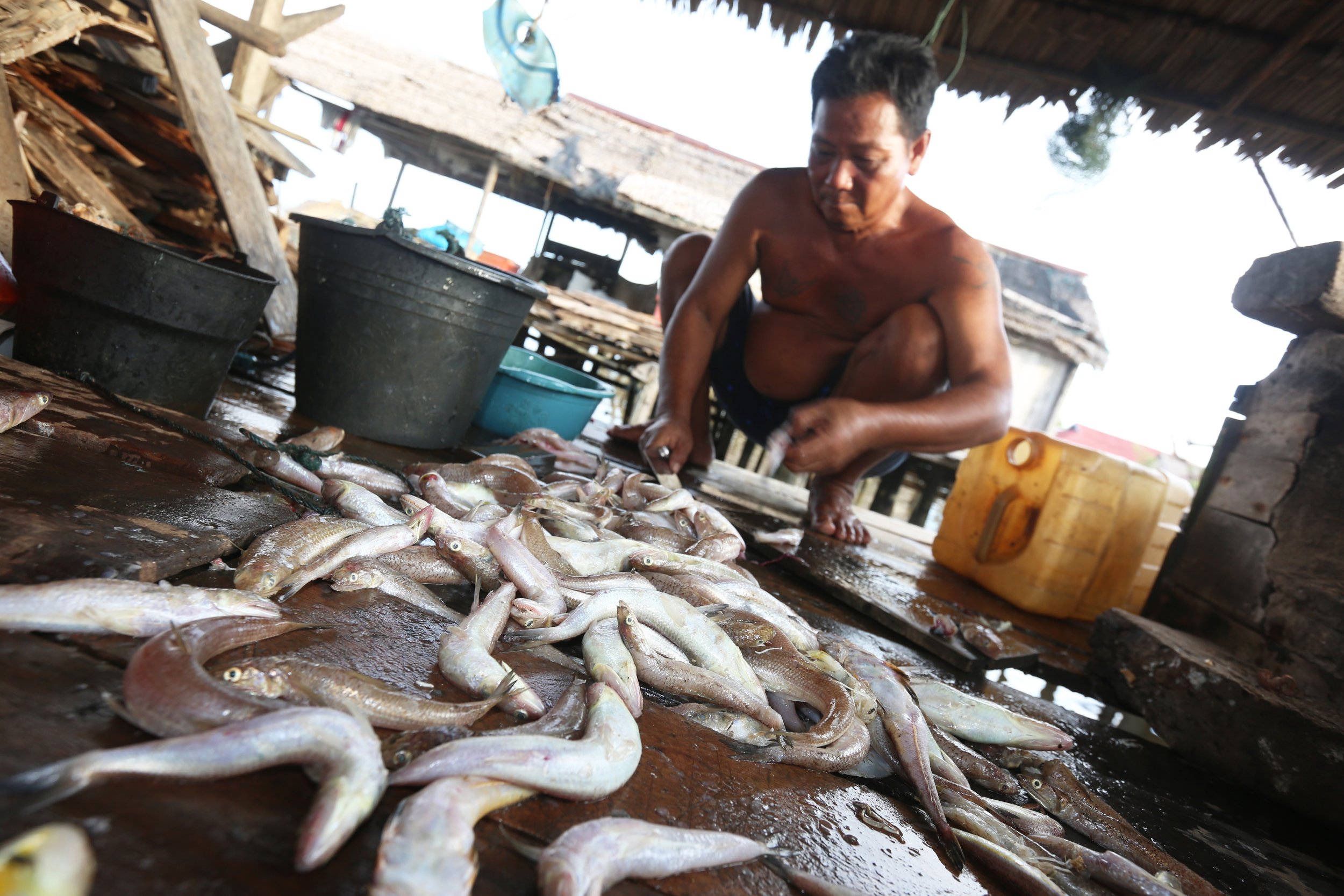Locally Managed Marine Areas: an interview with Agustar
Uniting both land and sea, coastal ecosystems are one of the most dynamic environments on the planet. These habitats contain extremely unique wildlife and plant communities such as coral reefs, mangrove forests, estuaries, and more. These coastal habitats are essential in supporting life on earth and present unique conservation challenges to human communities relying on them for their livelihoods.
Four coastal villages in Kubu Raya, West Kalimantan - a mangrove forest dominated ecosystem containing endangered species - take on the challenge of protecting their natural resources in what are known as Locally Managed Marine Areas (LMMAs) - a coastal or marine area that is wholly managed at a local level by the community often in partnership with larger community groups, land-owning groups, NGOs, and/or government representatives. It is a management system that champions the key value we hold at Planet Indonesia which is that natural resources are in the control and ownership of the communities that live among them. This management system is done in partnership with Yayasan Planet Indonesia and the Village Forest Management Institution.
We spoke with Agustar, who serves as the Head of the Mengkalang Jambu Village, one of the villages that has initiated the concept of community-based no-take zones (CBNTZs).
Question: What are your thoughts on Locally Managed Marine Areas and Community Based No Take Zones?
Agustar: Regarding the core zone, we are not only talking about future benefits or benefits for the next generation, but talking about the mandate given through the Village Forest Management Institution (LPHD), whereas the responsibility is automatically handed over to the village government through the LPHD. For this reason, LPHD must have a concept to protect the forest (its goal), with all the richness of the ecosystem or economic value inside the area of the village forest. Therefore, the zoning (core zone) is carried out in areas that have traditionally been protected from human activities such as encroachment or over-exploitation of natural resources, as well as other harmful activities. These core zones serve as a natural breeding place for mudcrabs which are an important resource for our communities. To develop the zoning for these core areas, an agreement between all elements of the community was established, especially with fishermen, who are the most important element. The core zone is intended for protection, research and education, where every activity carried out must have a future value for the area or human livelihoods.
Besides helping us in the context of developing and utilizing our natural resources, what I appreciate the most is how Planet Indonesia also helps open people's insight into the concept of using and managing natural resources with sustainability principles, so that the community has insight into thinking about village potential and problems. In the end, the community is willing to participate in an effort to protect and safeguard important areas in the village. The existence of Planet Indonesia in the partnering villages helps accelerate the process of determining or establishing core zone areas for the purpose of protecting and preserving potential and important mangrove areas.
Question: What is your expectation of the functionality of the Locally Managed Marine Area?
Agustar: The potential in the village area is extraordinary and the natural wealth is abundant. This collaboration in the sustainable management of mangrove and coastal areas means that the water areas in our village are protected together as a unit, not managed or protected based on each village's regulations, where the management rules are made, agreed upon, applied, and executed jointly (holistically). In LMMA there is a mechanism that is built and is sustainable (for now, tomorrow, and in the future), and this is a positive thing as our joint efforts in conservation. Planet Indonesia is very helpful in initiating the forms of area protection and sustainable management of mangrove and coastal resources that can be carried out by the community at the village level. LMMA is a good collaboration between Planet Indonesia and the village government, and the response of all villages is good. I am personally grateful for the cooperation built by Planet Indonesia regarding this LMMA, whose ultimate goal is not only to create the preservation and balance of the mangrove ecosystem, but also to the welfare of the community (improvement of the community's economy).
Question: How is the concept of sustainability enhanced with the existence of LMMA/CBNTZs?
Agustar: With the establishment of these CBNTZs, there are fishermen who feel helped in the context of the sustainability of fishery yields and the guaranteed sources of catch such as crabs, shrimp, and fish. The core zone will indirectly guarantee the sustainability of the catch for fishermen. Concretely, the crabs in the core zone will continue to breed and be distributed around the village waters which are the fishing community's activity area for catching seafood. The fishermen’s efforts also help with enforcing these core zones through communicating with individuals outside the village who may not know that these areas are protected. Together, with the marine-based SMART patrols, both parties act to further protect and use the mangrove and coastal areas sustainably.
I am optimistic, especially for the community of Mengkalang Jambu Village, that they are aware that the protection and management of mangrove areas in a sustainable manner is important and brings value in the future, not just participating in programs initiated or implemented by the village or village partnering organizations. But purely because the community has open insight and views, so that it becomes a common goal to protect the mangrove area.
To learn more about how Locally Managed Marine Areas and Community Based No Take Zones work in unison to protect valuable resources and habitats in Kubu Raya, visit our blog on community-led fisheries management.
You can donate here and if you have any questions please reach out via admin@planetindonesia.org. Follow us on our social media Facebook here and Instagram here to get timely updates on our activities, an insider’s look into the lives of front-line conservationists, and ongoing programs.





